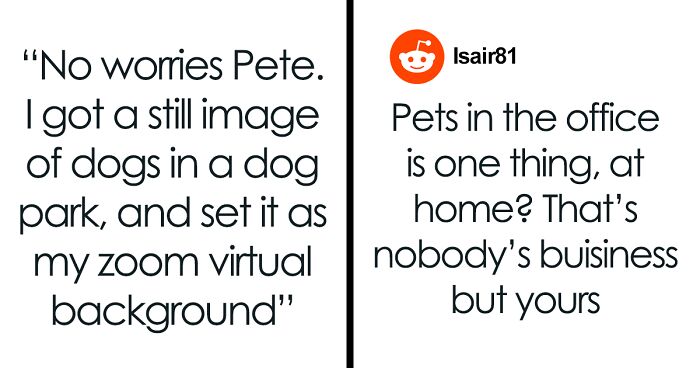
“My Dog Was Simply Sitting”: Worker Maliciously Complies With No-Dogs Home Office Policy
InterviewOnce not even an option for many, remote work became a new norm during the Covid years. But now, employed individuals seem to be in some sort of a limbo waiting for their companies to decide on a work model that’s here to stay.
Whether temporarily or not, many people are nowadays working from the comfort of their home, which they often share with family members or pets. Unsurprisingly, they can sometimes interrupt the workflow or accidentally show their faces during a video conference; usually, an important one.
With this redditor, it was their dog that their coworkers spotted during one of such calls. However, instead of being asked for a dog tax—a picture of the goodest boi in the household—they were given an official warning because of the company’s no-pet policy.
Scroll down to find the story in the OP’s own words below, where you will also find Bored Panda’s interviews with the redditor themselves, as well as with the director of Lerner College Career Services Center at the University of Delaware, Jill Panté, who was kind enough to share her insight on working from home.
Many people share their homes with a pet, most commonly with a dog
Image credits: Nataliya Vaitkevich / pexels (not the actual photo)
This person was told that their pet sitting in the background in a video call is a violation of the company’s no-pet policy
Image credits: Helena Jankovičová Kováčová / pexels (not the actual photo)
Image credits: Novel-Year-240
For many people, a hybrid work model allows them to get the best of both worlds
While some companies have long been providing remote work opportunities for their employees, many just started doing that in 2020, after the pandemic started. Since then, some businesses have called their employees back to the offices, others let them stay at home, while some chose the hybrid option, arguably getting—or hoping to get, at least—the best of both worlds.
According to the director of Lerner College Career Services Center at the University of Delaware, Jill Panté, a hybrid work arrangement is currently the most common one among companies. “The hybrid schedule varies but many times it’s 2-3 days in the office and 2-3 days working from home,” she noted in an interview with Bored Panda.
“A hybrid schedule seems to combine the best of both worlds – employees get some flexibility and cost savings throughout the work week and companies get stronger collegiality and an organizational culture.”
The hybrid model is arguably the best choice for those who enjoy staying at home, but are expected to come to the office nevertheless. (Hey, it might not be ideal, but working in your pajamas two days a week is better than never working in your pajamas, right?) When trying to decide whether it’s better for employees to remain at home or go back to the offices, it’s important for companies to take into consideration that there is no one ideal solution, but the hybrid model arguably allows both sides to meet somewhere in the middle.
“For many returning to the office, the loss of independence and flexibility is a major challenge,” Panté pointed out. “Remote work allowed people to catch up on their monetary savings (commute expenses, daycare) and provided a flexible work day so people could manage their professional and personal schedules according to what worked for them without being micromanaged.
“On the other hand, companies and supervisors have expectations and goals for their employees and remote work may not allow for proper supervision of employees who can’t work independently. In that case, coming into an office environment may work better for these employees where a supervisor is more readily available and can check in on progress in person. While this can be achieved remotely, not everyone works best through a computer screen.
“I believe companies should avoid implementing a one-size-fits-all policy for all employees,” the expert continued. “Instead, they should invest time in assessing individual employees’ needs to determine the most effective work arrangement—whether it be remote, in-office, or hybrid.”
Image credits: Tima Miroshnichenko / pexels (not the actual photo)
Most people don’t mind seeing their co-worker’s pet join the virtual meeting
It’s unclear whether the OP just happened to work from home that day or if that was their regular arrangement, but for them, working remotely meant sharing the home office with a pet. It’s safe to assume that it made both of their days better. For pet owners working from home, the time and money saved from not having to commute to work every day meant that they could spend both on spoiling their pet.
Discussing the benefits of remote work, Jill Panté, too, emphasized being able to save time and money, which for many people was arguably the main silver lining of the pandemic. “Some of the main benefits of remote work can include a better work-life balance, less stress, more time saved (when it comes to commuting), more independence, less chance of getting involved in office gossip (which can be unhealthy mentally), and more money saved,” the expert said.
“With the option to work remotely, people can save a lot of money from not having to pay for gas, parking, car maintenance, and tolls. Moreover, if people have kids or other independents, it allows them more flexibility to keep them at home rather than spending money on daycare or programs. Especially with costs rising and salaries going flat, this is one way people can get ahead financially.
“Remote work also awards people more time in their day. Without a commute, which for some can be up to two hours round trip, people are able to dedicate more time to self-care and taking care of their families. And moreover, remote work may be healthier for people, especially at organizations where there are toxic supervisors and co-workers.”
Chances are, some people might consider the OP’s superiors somewhat toxic, bearing in mind that they gave the pet owner an official warning after seeing their dog in the background. In an interview with Bored Panda, the OP shared that they were surprised to receive an official strike for such a reason. “I thought a friendly warning would be in order first,” they noted, adding that they were never told that the no pet policy applied when working from home, too.
Many people have seen—or experienced firsthand—that animals love photobombing, be it a family photograph or a conference, and most don’t seem to mind it too much. A study carried out by a teambuilding and leadership development organization, Odyssey Teams, revealed that more than seven-in-ten employed individuals have had their own pet barge onto the screen during a virtual business meeting, and close to nine-in-ten have seen a co-worker’s pet do the same thing. According to the study, 85% of respondents said that it neither bothered nor distracted them when a co-worker’s pet joined the meeting.
Image credits: Kampus Production / pexels (not the actual photo)
The OP answered a few of netizens’ questions and suggestions
Some people shared similar stories in the comments
Poll Question
Thanks! Check out the results:
No pets in office is ok (boring but ok). A company does not have the right to dictate who and what you have in your private home.
I'd send a bill for office rent to them. "If you are dictating office rules in my own home, you'll pay rent for my home office."
Load More Replies...My husband works from home. During one Zoom meeting, a colleague asked him what kind of dog that was that just walked away in the background. He said, "What dog?" and looked around. It was one of our cats. The folks in his meeting didn't believe that was a cat so he had to go get the kitty from the other room. Kitty is a 16 pound, super fluffy, part Maine C**n cat. The Zoom meeting gang was freaked out by such a big cat and made jokes like - I bet you are never late feeding that critter.
I remember Rocco, the cat of an UK parliament member. He was talking on video and you could see Rocco's tail waggling in front of the camera: ''Rocco, put your tail down!". I spat my coffee with laughter :)) https://www.youtube.com/watch?v=4pq9N8qrTT0
Load More Replies...No pets in office is ok (boring but ok). A company does not have the right to dictate who and what you have in your private home.
I'd send a bill for office rent to them. "If you are dictating office rules in my own home, you'll pay rent for my home office."
Load More Replies...My husband works from home. During one Zoom meeting, a colleague asked him what kind of dog that was that just walked away in the background. He said, "What dog?" and looked around. It was one of our cats. The folks in his meeting didn't believe that was a cat so he had to go get the kitty from the other room. Kitty is a 16 pound, super fluffy, part Maine C**n cat. The Zoom meeting gang was freaked out by such a big cat and made jokes like - I bet you are never late feeding that critter.
I remember Rocco, the cat of an UK parliament member. He was talking on video and you could see Rocco's tail waggling in front of the camera: ''Rocco, put your tail down!". I spat my coffee with laughter :)) https://www.youtube.com/watch?v=4pq9N8qrTT0
Load More Replies...
 Dark Mode
Dark Mode 

 No fees, cancel anytime
No fees, cancel anytime 













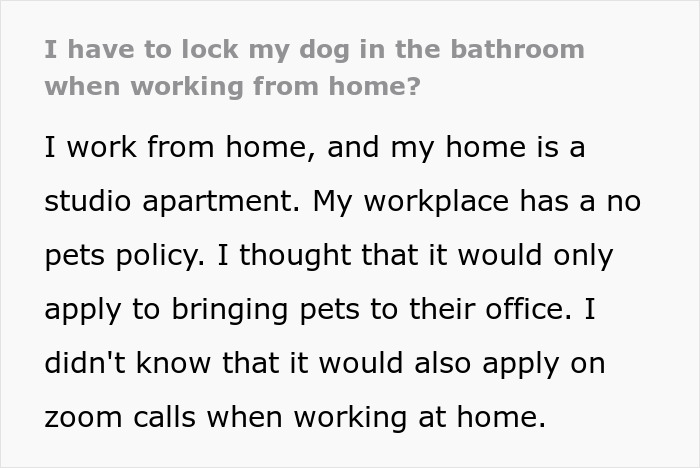
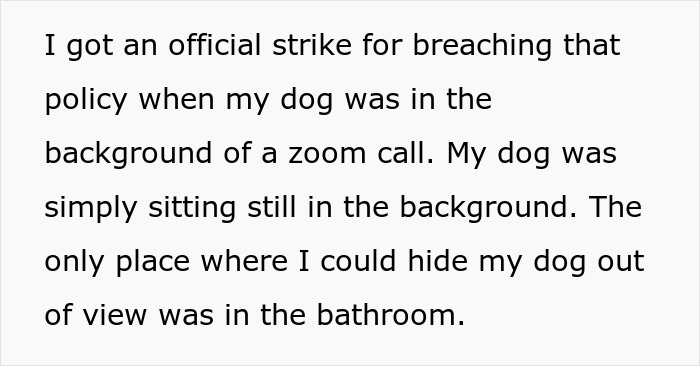




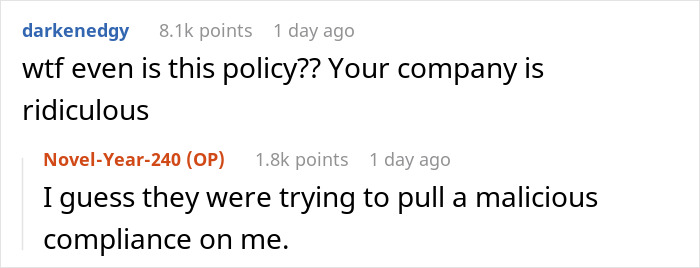


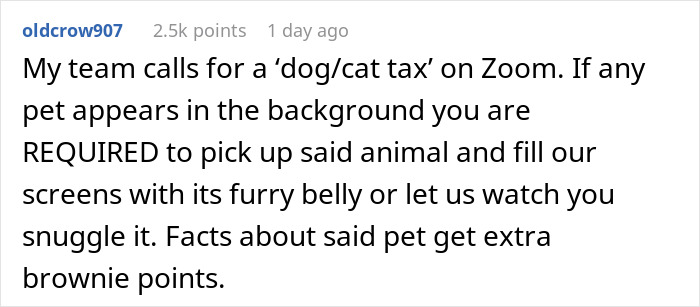
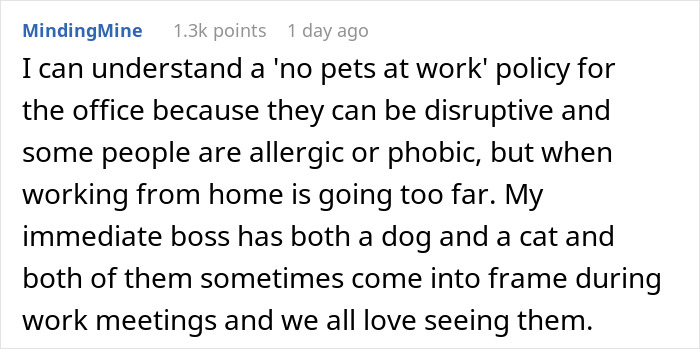

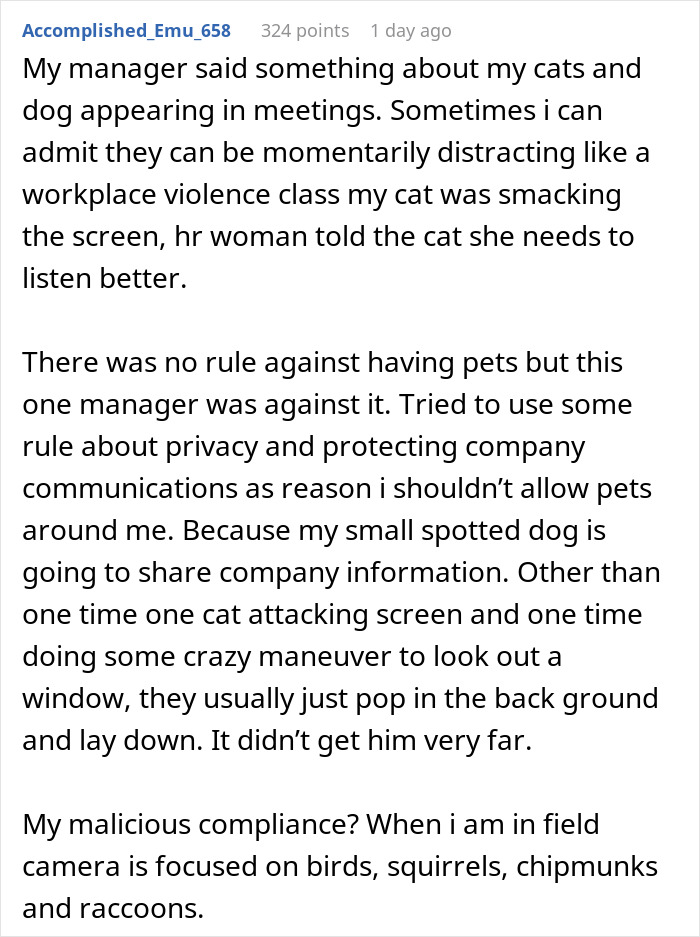
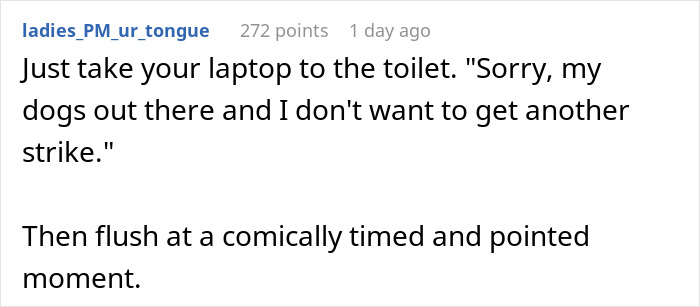

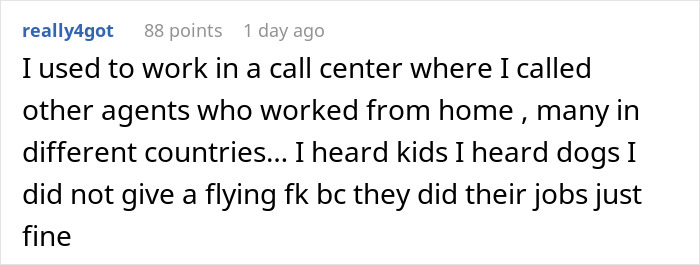
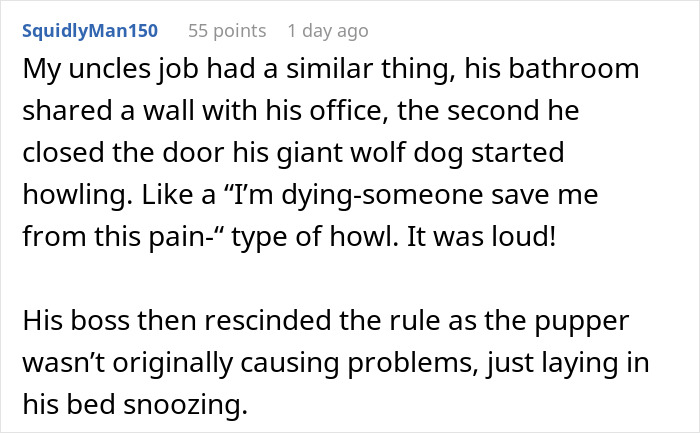



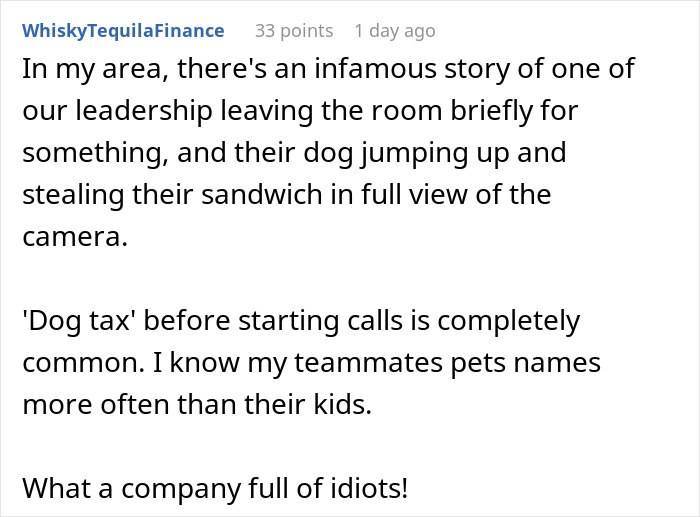

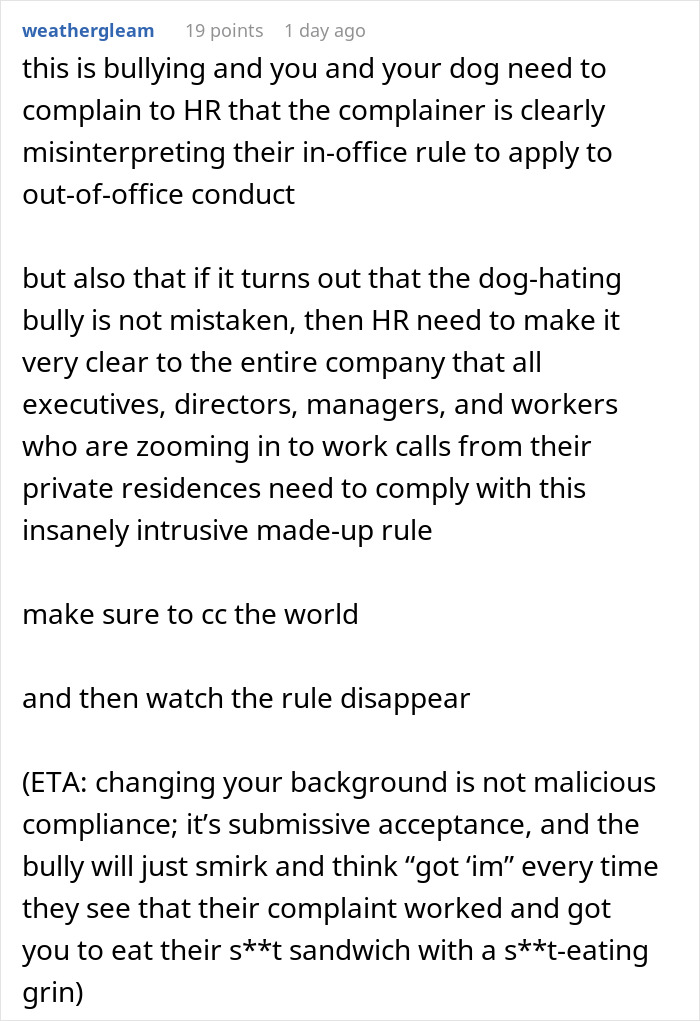













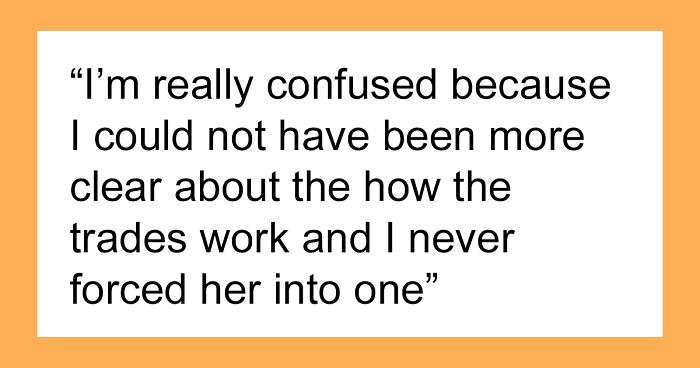






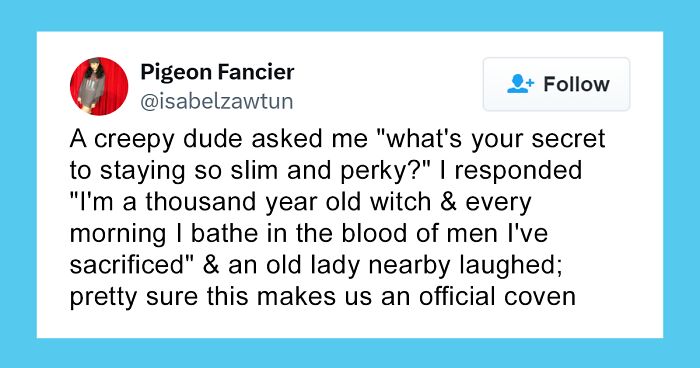
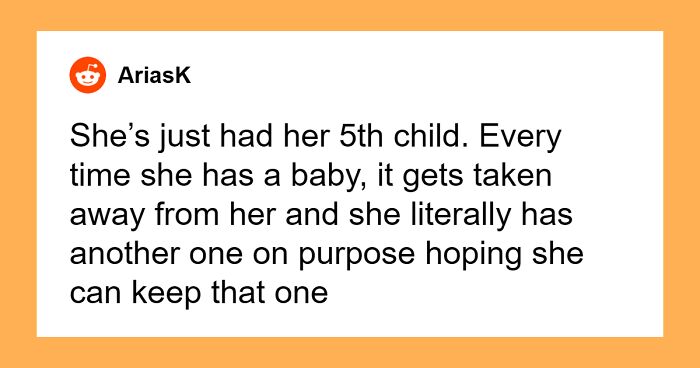




44
55